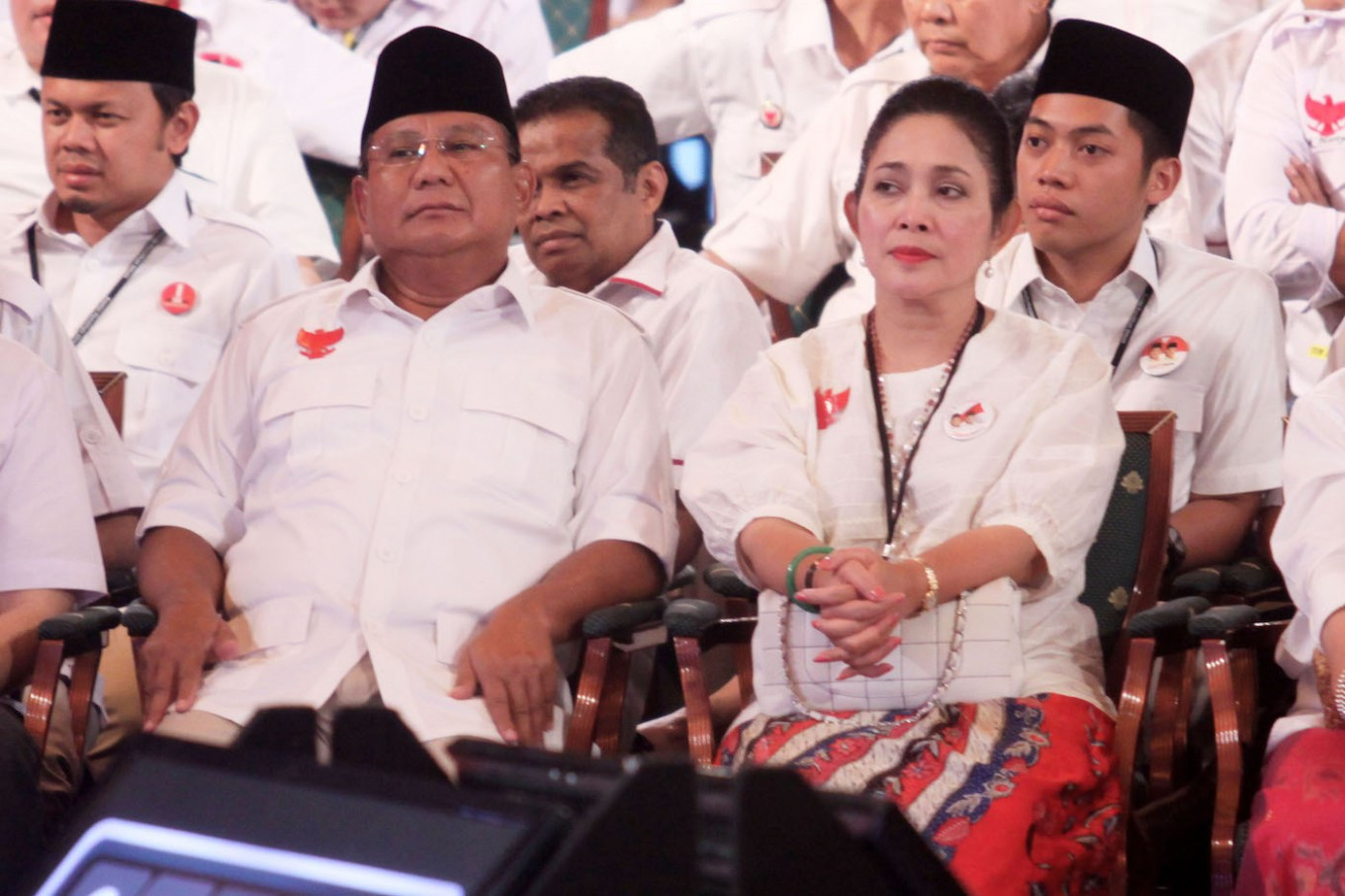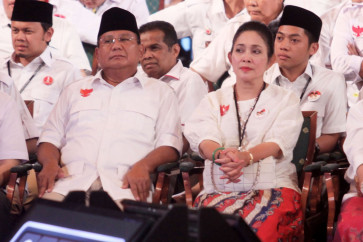Popular Reads
Top Results
Can't find what you're looking for?
View all search resultsPopular Reads
Top Results
Can't find what you're looking for?
View all search resultsAnalysis: Cronyism reawakens as Prabowo caves in to top tycoons
Change text size
Gift Premium Articles
to Anyone
P
resident Prabowo Subianto has positioned himself as a populist leader, launching ambitious initiatives to appeal to the broader public. However, his recent meet-ups with the country’s top business magnates have raised suspicion over his underlying intentions.
On March 6 and 7, Prabowo invited several business tycoons to his office, welcoming Anthony Salim, Sugianto “Aguan” Kusuma, Prajogo Pangestu, Garibaldi “Boy” Thohir, Franky Oesman Widjaja, Dato Sri Tahir, James Riady and Tomy Winata in a closed-door meeting on the first day. The discussion was later revealed to have revolved around their potential role in aiding ambitious government projects like the free nutritious meal program, as well as others in infrastructure, textiles and industries and the recently established sovereign wealth fund (SWF), Danantara, and support the President’s food and energy self-sufficiency agenda.
The same tycoons also attend a meeting on the second day, along with ministers and other business moguls like Andi Syamsuddin “Haji Isam” Arsyad, Anindya Bakrie, Chairul Tanjung and Hilmi Panigoro, as well as United States billionaire and hedge fund manager Ray Dalio. The President said he had invited Dalio to provide critical guidance on Danantara, which has been met with controversy from analysts. Prabowo also used the occasion to introduce Dalio to his brother and key adviser Hashim Djojohadikusumo, a businessman.
Prabowo’s actions have drawn comparisons to autocrat Soeharto, his former father-in-law, who often looked to billionaire friends like Bob Hasan and Sudono Salim, Anthony’s father, to fund national programs. This led to the phenomenon dubbed “koncoisme” (cronyism), under which Soeharto granted exclusive privileges to a select group of business tycoons, allowing them to reap economic rent from monopolies and government contracts.
If Prabowo continues down this path, the problems that plagued Soeharto’s New Order regime could resurface. His engagements with the business elite raises concern about the potential revival of patronage networks, where business interests dominate government projects and policy decisions. As these elite businessmen gain influence, fears of monopolization and cronyism will cast a shadow over his administration.
To his credit, the President’s willingness to publicize these meetings indicates a stark difference from his predecessor Joko “Jokowi” Widodo, who often confided in the same elite businessmen over the 10 years of his two consecutive terms, albeit clandestinely.
Still, concerns have been raised over the involvement of Aguan and Anthony, who have been embroiled in the recent scandal over the illegal installment of a makeshift sea barrier off Tangerang, Banten, and the Pantai Indah Kapuk (PIK) 2 real estate megaproject in North Jakarta.



















